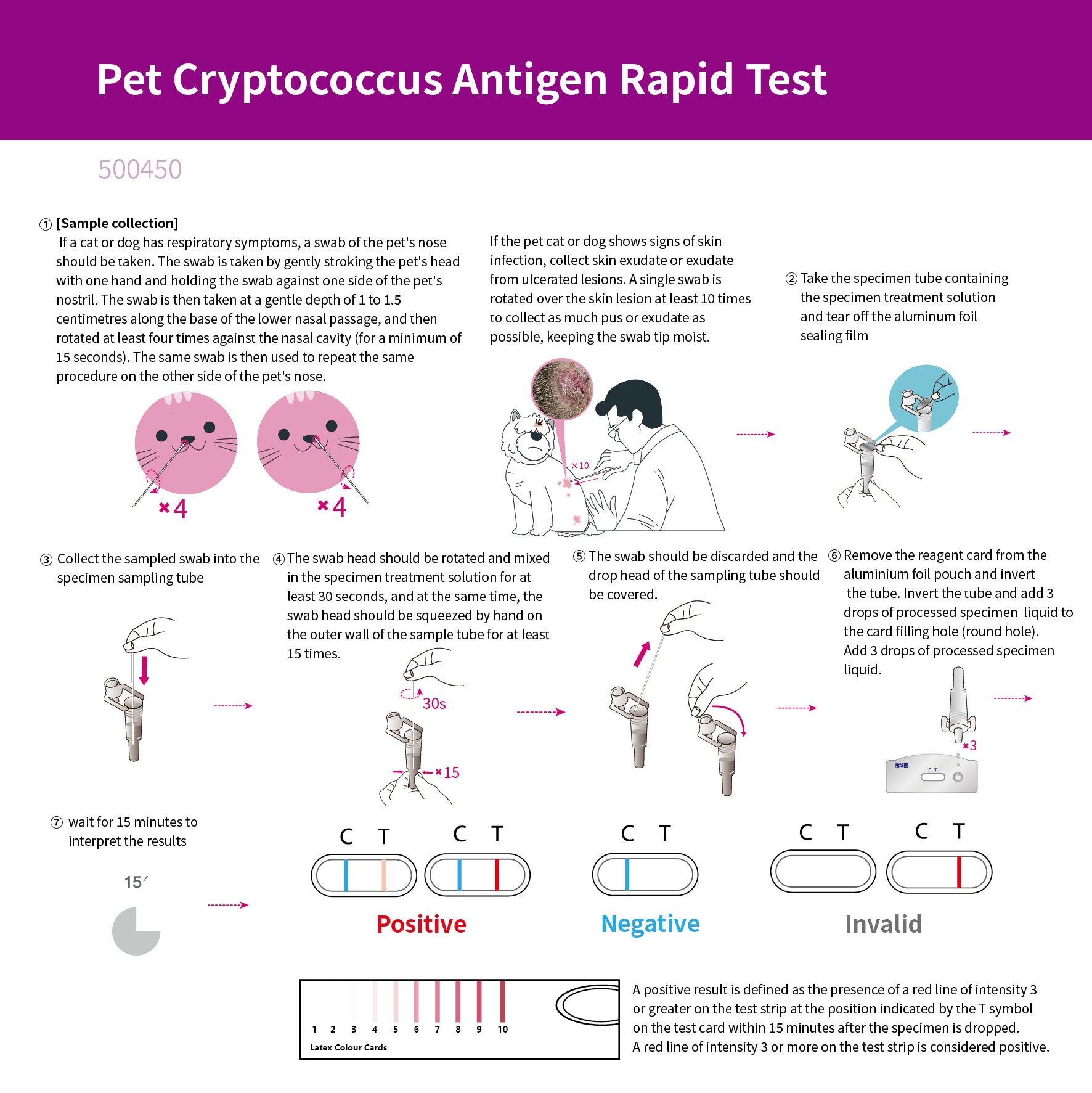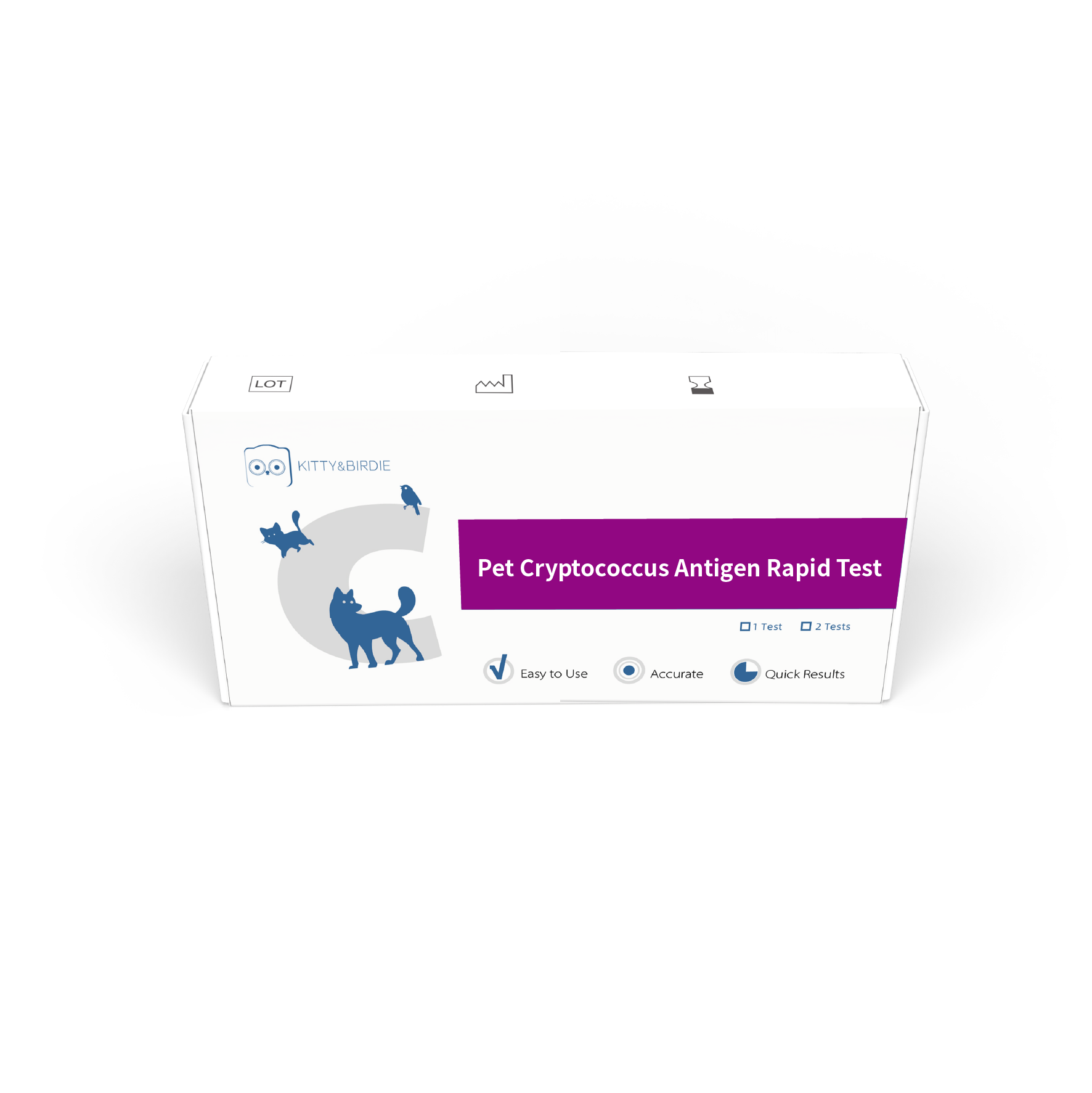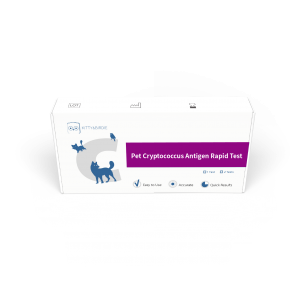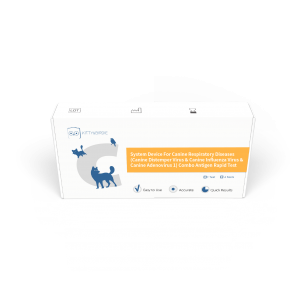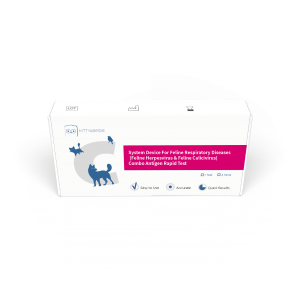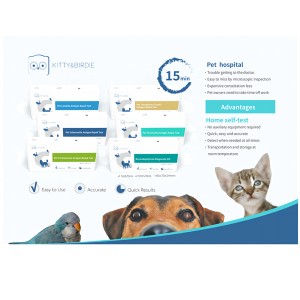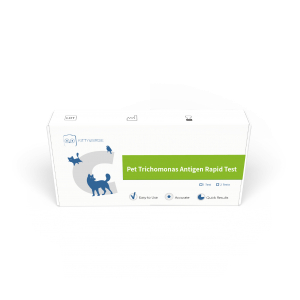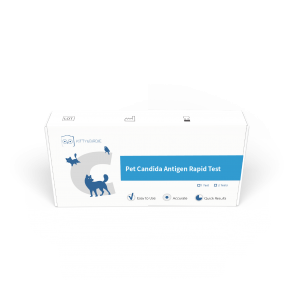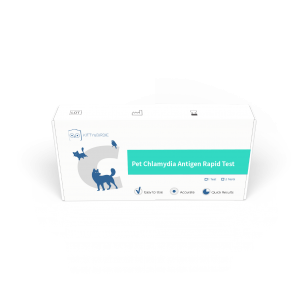Pet Cryptococcus Antigen Rapid Test
The Pet Cryptococcal Antigen Detection Kit (Latex Immunochromatography) is used for the rapid detection of cryptococcal antigens in pet cat and dog samples, and can also be used as an aid in the diagnosis of cryptococcosis.
Cryptococcosis is a chronic or subacute fungal disease of mammals and humans caused by Cryptococcus neoformans. Clinical symptoms vary depending on the site of attack of the new cryptococcus (respiratory and cutaneous infections).
In cats, cryptococcosis mainly affects the upper respiratory tract. Affected cats present with sneezing and frequent discharge of purulent, mucous or haemorrhagic nasal secretions from one or both nostrils, often mixed with small amounts of granular tissue. The bridge of the nose is swollen, hard and sometimes ulcerated. The submandibular and dorsal pharyngeal lymph nodes are enlarged and hard, but are not painful to palpation. Occasionally, Cryptococcus neoformans attacks the lungs, with coughing, dyspnoea with rales, and even systemic symptoms such as elevated temperature.
Dogs are more likely to be infected with central nervous system, after the onset of mental depression, circling, ataxia, hindquarters paralysis, pupils of different sizes, blindness, and loss of sense of smell and other symptoms.
If Cryptococcus attacks the skin or subcutaneous tissue, it usually causes papules, nodules or abscesses on the head of cats, which break down and discharge pus and blood. In dogs, the skin all over the body is susceptible to the disease. Novel cryptococcal infections of the eye can cause anterior uveitis, granulomatous choroidal retinitis, optic neuritis, clouding of the cornea, and in some cases blindness.
Laboratory tests for cryptococcal infections include stained microscopic examination of tissue fluids and secretions, isolation and culture of diseased material inoculated on culture media; and serological diagnosis of cryptococcal antigens using latex agglutination or enzyme-linked immunity.
